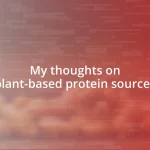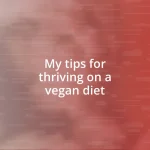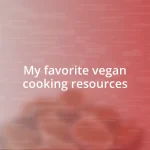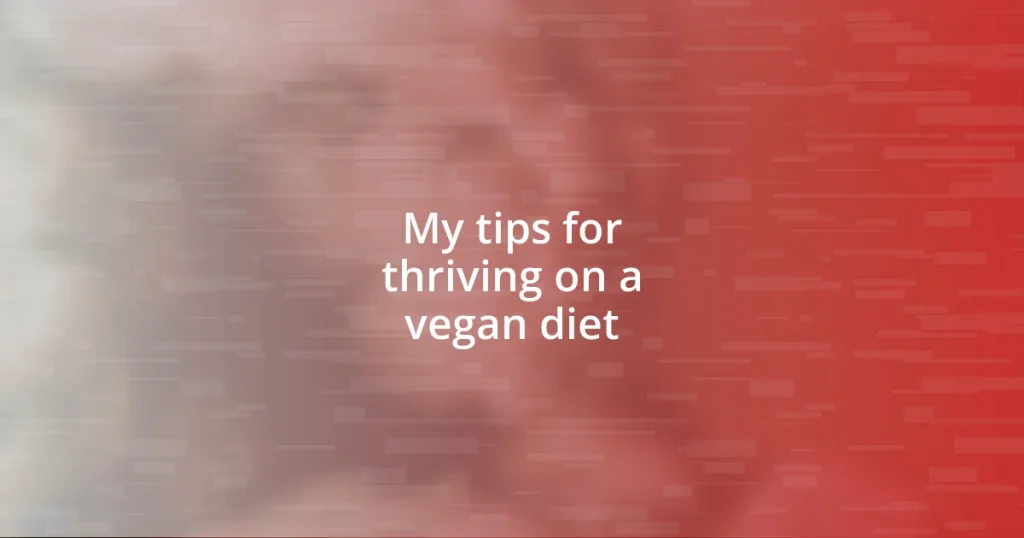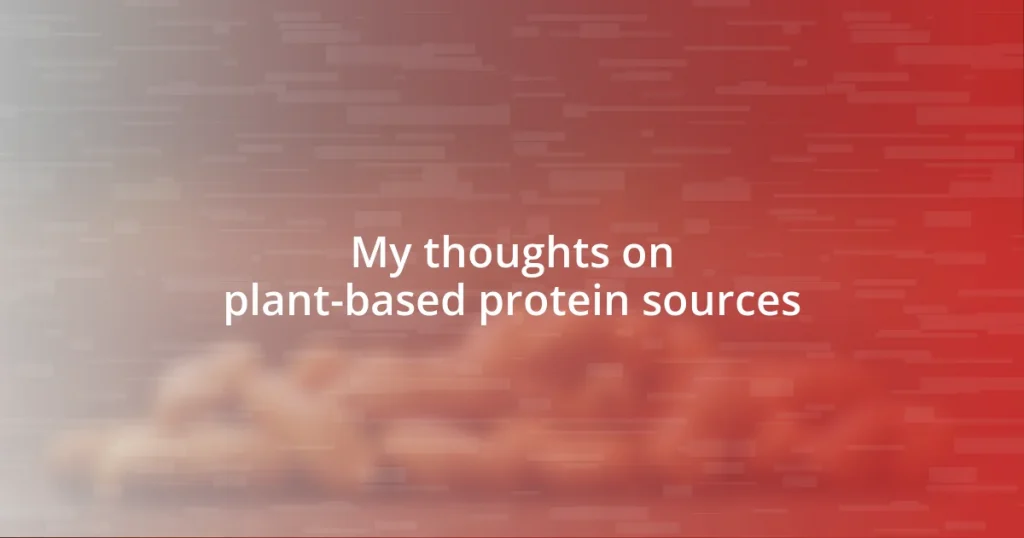Key takeaways:
- A vegan diet emphasizes plant-based foods while ensuring adequate nutrient intake, particularly protein, iron, and B12.
- Benefits of veganism include increased energy levels, improved health (like better skin and digestion), and a reduced carbon footprint.
- Overcoming challenges involves gradual changes to diet, effective communication about dietary preferences, and tracking nutrient intake for balance.
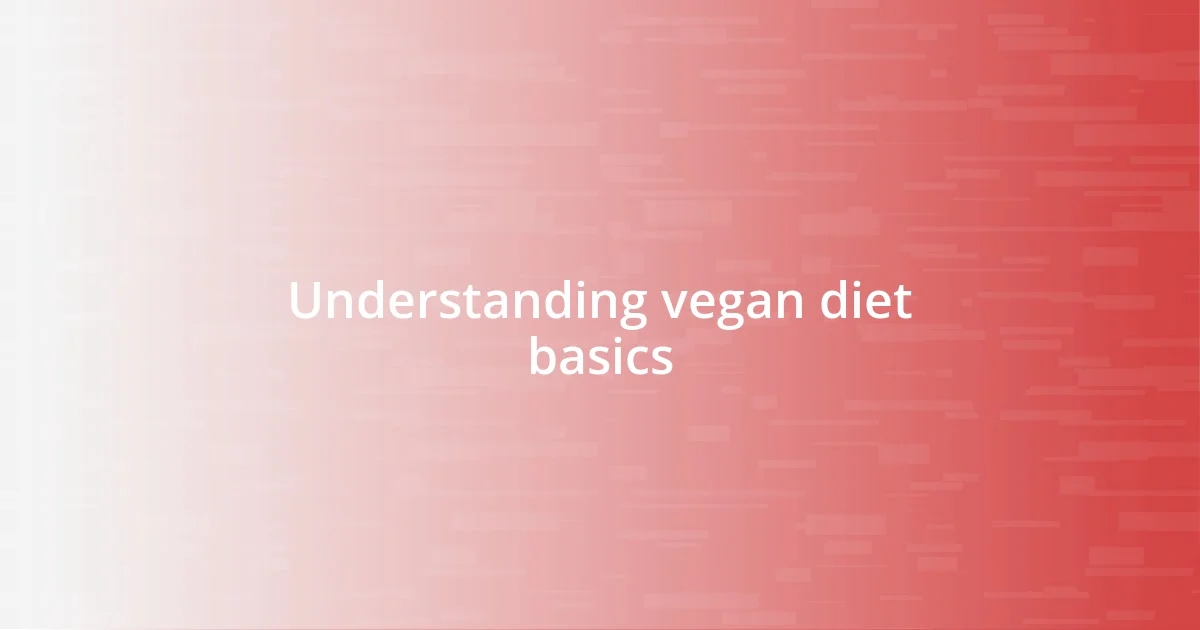
Understanding vegan diet basics
A vegan diet essentially eliminates all animal products, focusing solely on plant-based foods. When I transitioned to this lifestyle, I was astonished at how vibrant and flavorful fruits, vegetables, nuts, and grains can be. Have you ever really savored a perfectly ripe mango or the crunch of fresh kale? There’s a whole world of flavors waiting for you to explore.
Understanding the nutritional nuances is crucial. While going vegan can lead to a plethora of health benefits, it’s key to ensure you’re getting adequate amounts of nutrients like protein, iron, and B12. I remember feeling a bit overwhelmed initially, but investing some time into meal planning made it easier to balance my diet. What helped me most was discovering plant-based protein sources like lentils and chickpeas; they not only filled me up but made me feel energized.
It’s not just about what you eat—it’s a mindset shift. Adopting a vegan diet has taught me to be more conscious about my food choices and the impact they have on my health and the environment. Have you considered how your diet influences not just your body, but also the planet? That realization has profoundly shaped my journey, making each meal feel like a step toward a healthier, more sustainable lifestyle.
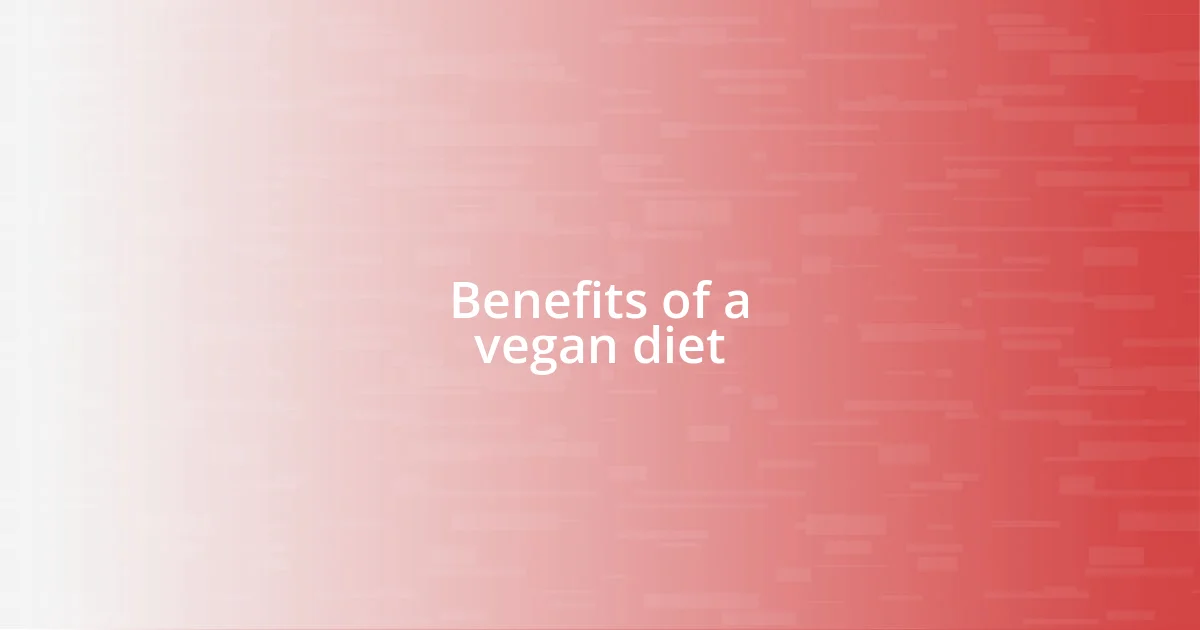
Benefits of a vegan diet
Going vegan brings a multitude of benefits that can positively affect your health. One of the most noticeable changes I experienced was an increase in energy levels. After a few weeks of adopting a plant-based diet, I found myself more active and less prone to the midday slumps that used to plague my afternoons. Have you ever felt that heavy fog after lunch? Swapping heavy animal products for lighter veggies helped clear that up for me.
Incorporating more plant-based foods into my meals also led to significant improvements in my overall health. I noticed my skin became clearer and my digestion improved, which was a pleasant surprise. I remember chatting with a friend who transitioned to a vegan diet and noticed the same positive changes. It’s like our bodies thanked us for giving them nourishment from nature!
On a broader scale, the environmental impact of a vegan diet is profound. Choosing plant-based options reduces one’s carbon footprint, as animal agriculture is a major contributor to greenhouse gas emissions. I often reflect on my own journey; learning that each meal I choose can help preserve our planet instilled a sense of purpose within me. Have you thought about how your food choices can make a difference? It’s empowering to know that what we eat holds the potential to create positive change.
| Benefit | Explanation |
|---|---|
| Increased Energy | Plant-based foods can lead to higher energy levels and reduced fatigue. |
| Improved Health | Many people experience better skin and digestion on a vegan diet. |
| Environmental Impact | A vegan diet decreases your carbon footprint and helps combat climate change. |
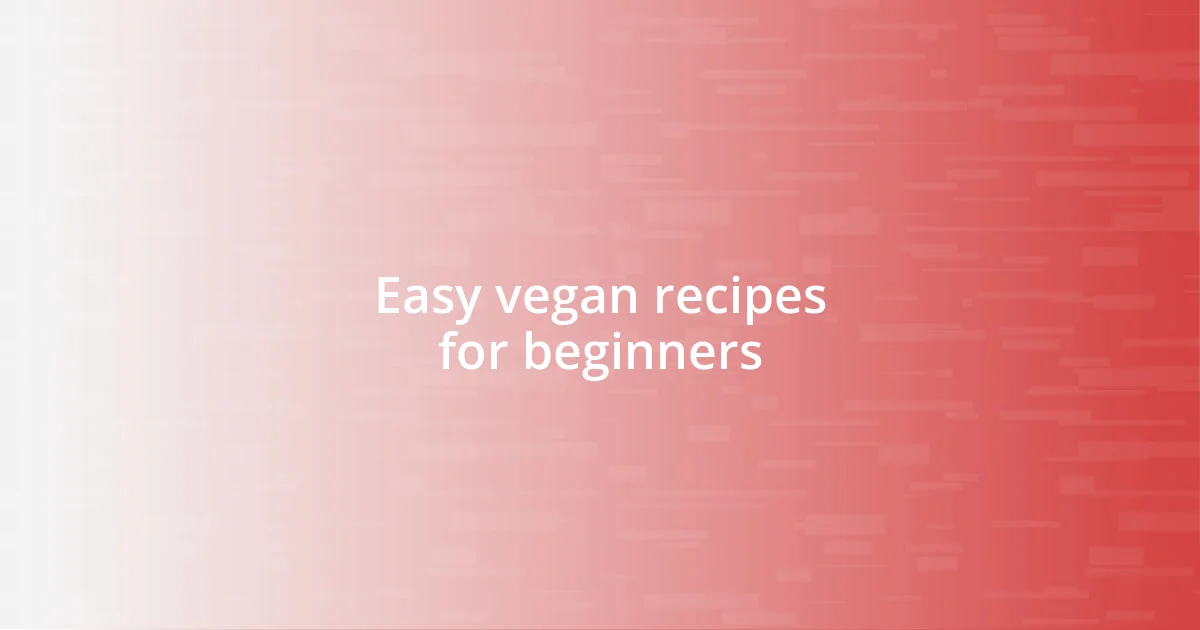
Easy vegan recipes for beginners
When starting on a vegan journey, finding simple yet delicious recipes can make all the difference. I vividly recall my first attempt at cooking vegan; I was intimidated but excited. One of my go-to first recipes was a stir-fry with colorful veggies and tofu. The vibrant colors made the dish not only visually appealing but also packed with nutrients. I remember how the garlic and ginger aroma wafted through my kitchen, making me eager to taste the final product.
Here are a few easy vegan recipes that are perfect for beginners:
- Chickpea Salad: Combine canned chickpeas, diced cucumbers, tomatoes, and lemon juice for a refreshing meal.
- Vegan Tacos: Use lentils or black beans as a filling, topped with avocado slices and salsa.
- Quinoa Bowl: Mix cooked quinoa with roasted vegetables and a splash of olive oil for a hearty dish.
- Pasta Primavera: Toss whole wheat pasta with sautéed seasonal vegetables and nutritional yeast for a cheesy flavor.
- Smoothie: Blend a banana, spinach, and almond milk for a nutrient-rich start to your day.
Exploring different flavors and textures in vegan cooking ignited a passion for me that I didn’t expect. I still smile thinking about how I transformed my kitchen into a vegan haven, filled with the scents of spices and vibrant produce. The simple act of cooking became a joyful ritual, and each new recipe added a layer of excitement to my lifestyle.
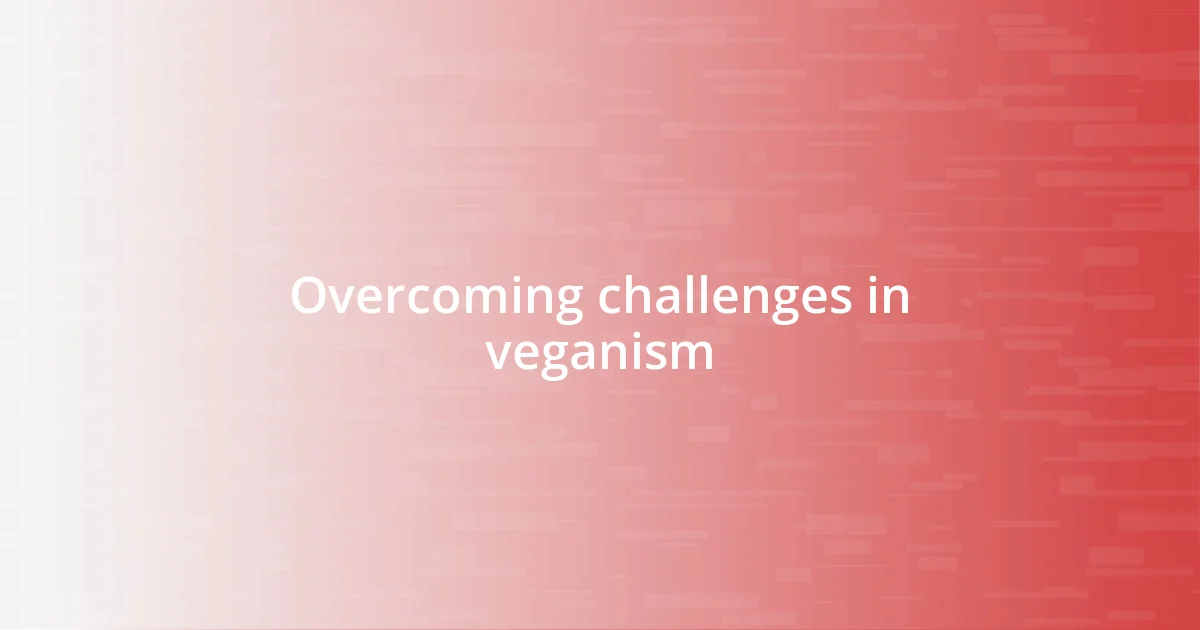
Overcoming challenges in veganism
Navigating the challenges of veganism can be daunting at times. I remember feeling overwhelmed by the myriad of options and the pressure to get everything right. One thing that helped me was to focus on gradual changes rather than an all-or-nothing approach. Have you ever tried swapping out one meal a day for a plant-based option? It can be a game-changer, allowing you to slowly adapt without feeling deprived.
Social situations posed another challenge, as I often found myself surrounded by non-vegan friends at gatherings. Initially, it felt isolating, but I learned to communicate my dietary preferences openly and even bring a dish to share. I recall a potluck where I brought a hearty vegan chili that won everyone over. Seeing them enjoy a meal I made filled me with pride, and it reinforced how delicious vegan options can be, breaking the stereotype of blandness associated with plant-based diets.
Another hurdle is ensuring you’re getting enough essential nutrients, particularly protein and Vitamin B12. I’ve found it helpful to keep a food journal to track my intake and ensure a balanced diet. Have you considered using nutritional guidelines as a resource? This practice empowered me to explore various plant-based sources, leading me to discover delicious foods like lentils, almonds, and nutritional yeast. It transformed my perception of what it means to ‘thrive’ on a vegan diet.


